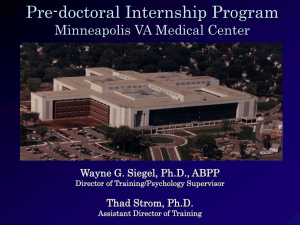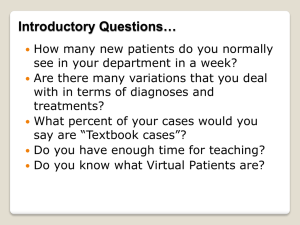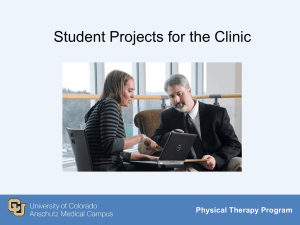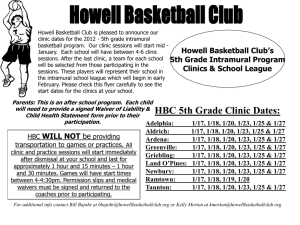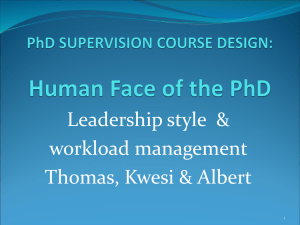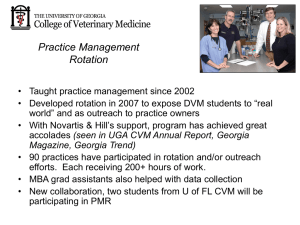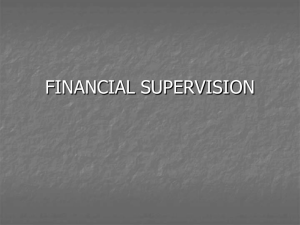Interview Day PowerPoint Minneapolis VA Internship
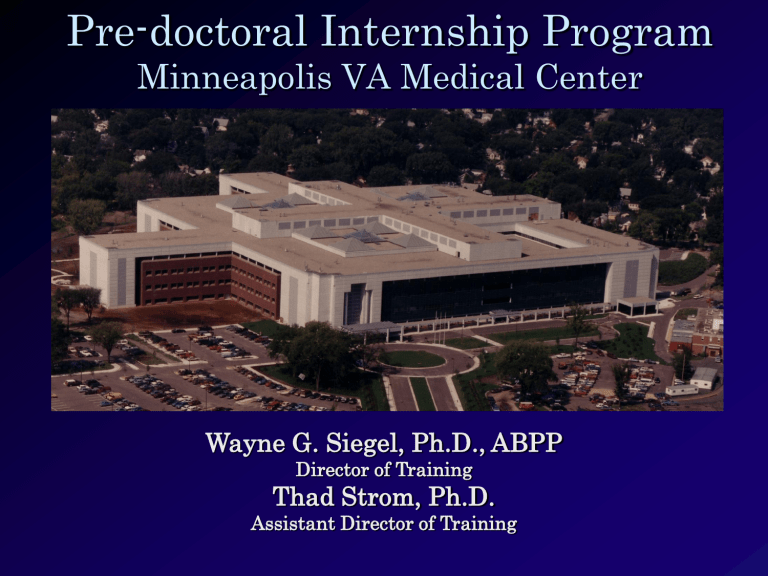
Pre-doctoral Internship Program
Minneapolis VA Medical Center
Wayne G. Siegel, Ph.D., ABPP
Director of Training
Thad Strom, Ph.D.
Assistant Director of Training
What to Expect Today?
Information
Overload!
Actually, a good understanding of our Internship and our dedication to excellent clinical training
Schedule
8:00 - 9:00 Intros. Brief Program Description
9:00 – 9:30 Overview of Research Opportunities
9:30 - 10:20 Interview block
10:30 - 11:20 Interview block
11:30 - 1:30 Lunch/ Rotation/Adjunctive
Supervisors (2 nd Floor Atrium – see map)
1:30 - 2:30 Interview block
2:30 - 3:15 Meet with current interns
3:15 - 3:45 Tour by Postdoctoral Residents
345 – 4:14 Wrap up with TDs
Each applicant will have 2 interviews of approximately 45 minutes.
Two interviews in three blocks.
The second interview will include a clinical vignette.
Minneapolis VAMC
Approximately 500,000 veterans residing in our primary service area,
Tertiary referral center for VSIN 23
Ethnic minorities - 7% of those treated
65+ is the largest single clientele category but a growing mid 20’s cohort
Women Veterans Comprehensive Health Center
VA Lead Polytrauma Center
State of the art Spinal Cord Injury center (SCI )
Telemedicine / CBOC Opportunities
Will host VISN Tertiary Chronic Pain Tx Center
Competitively Funded Research Programs
Psychologists - more than $11,000,000 in meritreviewed, multi-year research grants
One of the largest education and training programs in the VA system
Affiliations with 50 colleges, universities, and technical schools in allied health professions
The Presence of Psychology
70 doctoral psychologists many of which hold clinical faculty positions at the University of MN
Psychologist are assigned to one or more of the specialized treatment units an have a strong presence in almost every area of the medical center
Many psychologists are in key leadership roles in the medical center and nationally.
Staff hold a diversity of interests, expertise, theories, and techniques
The discipline of Psychology is highly valued in the
Medical Center
Training Model & Philosophy
Accredited by the Commission on Accreditation of the
APA
Member of APPIC and abides by its guidelines
Member of APCS
Scientist Practitioner Model
Scientific data and scholarly work are incorporated into all training experiences
Significant opportunity to be involved in research through the internship year
Training is Developmental
Close supervision, mentorship, and intensive instruction to relatively autonomous functioning over the course of the year
Interns take an active role in developing their training plan
Graduating interns develop the competencies and a sense of professional identity needed for entry-level positions or post docs
Broad Training Goals
Goal 1: Psychological Evaluation and
Assessment Diagnostic interviewing
Goal 2: Psychological Interventions
Goal 3: Providing Consultation & Supervision
Goal 4: Ethics & Diversity
Goal 5: Maturing Professional Identity
Goal 6: Interface Between Science and Practice
Training Tracks
2 tracks with 2 separate Match numbers
Think of them as separate internships
6 General Clinical/Counseling positions
2 Neuropsychology positions
Emphasis on neuropsych training meeting APA Division 40 and Houston Guidelines (at least 50%)
Training is still broad and general in clinical psychology
The Neuropsychology Track
Neuropsychology and neuropsychological assessment
Meets the Houston Conference and APA Division 40 specialty training guidelines
Approximately 50% of his or her time to neuropsychology
2 rotations 17 week-long rotation in neuropsychology and rehabilitation psychology as well as providing assessment and intervention services in our GRECC.
3rd rotation areas outside of neuropsychology, usually dealing with severe mental illness
Weekly neuropsychology case conference, neurology rounds, and PM&R team rounds
Supervisors: Drs. Carter, Clason, Eidson, Lamberty,
Lundgren, and Sim.
Rotations
Assigned by interest and training needs
Orientation week
Learn about different rotations
Work with TDs to choose and sequence rotations so that intern training goals and program competency standards are met
Track activities are guaranteed, rotations are not
Schedules can be adjusted as needed later in the year
Addictive Disorders
Supervisors: Drs. Deloyski, Silversmith, and Siegel
Flexible and individual treatment by matching patient needs with interventions
Assessment and intervention services to patients with primary SUDs and those dually diagnosed
Individual and group therapies (process-oriented and structured skill-building), behavior and case management, and patient education
Diagnostic interviewing, objective and projective testing, and neuropsychological screening
Provide consultation in the context of a multidisciplinary team
Admissions/Crisis/Consultation Team
(ACC)
Supervisor: Drs. Arbisi
Main intake and evaluation center
Work closely with the Medical Center ER
Diagnostic interviewing, psychological and neuropsychological screenings and assessments, brief therapy, crisis management
The Mood Disorders and General
Psychiatry Team
Supervisors: Drs. Hess, Perry, and Walden
Specializes in mood disorders and general psych patients
Diverse theoretical perspectives
Emphasizes diagnostic interviewing, psychological assessment, and psychological intervention
Intake evaluations, outpatient personality assessment, and neuropsychological screening evaluations, individual and group psychotherapy
Neuropsychology (rotation)
Supervisor: Drs., Carter, Clason, Eidson, Lamberty,
Lundgren, and Sim.
Ok for specialization as well as those wanting just experience
Eclectic test battery
Competence in consultation skills - TBI Team,
Neuropsychology Case Conferences, and MS Team
Variety of patients – dementia, strokes, TBI, tumors, seizures, and MS, etc.
Psychiatric Partial Hospitalization (PPH)
Supervisor: Dr. Isenhart, Peterson, Schumacher, and
Broden
Not a treatment team - cost-effective and clinically viable alternative to full hospitalization
Intensive treatment while avoiding some of the malignant regressive temptations often associated with inpatient care
Organized within a therapeutic community or milieu setting, the broad range of treatments include:
Case management, educational therapy, group therapy, occupational therapy, recreational therapy, and medication management
Opportunity for psychoeducational and process group experience
Post-Traumatic Stress
Recovery (PTSR) Program – Team L
Supervisors: Drs. Curry, Ferrier-Auerbach, Kaler
Meyers, Polusny, Voller, and Wagner
Training in the assessment and treatment of patients with acute and chronic trauma-related disorders
Assessment – diagnostic interviewing, objective, projective, and neuropsychological instruments
Individual, family, and group psychotherapy
EST – CPT, PE, MI and Seeking Safety
Consultation to the multidisciplinary team
Psychoeducational activities
Ongoing research
Female veterans, OIF/OEF service members
Variety of traumas.
Primary Care Psychology/ Health Psychology
Supervisors: Drs. Billig, Helbok, Mallen Olson, Chiros, and
Skroch
Integration of mental health with primary care
Co-located working collaboratively with PC staff
Rapid access and tx for acute psychiatric disorders
Innovative models of co-managing care for patients with chronic medical and mental health conditions.
Interns will have the opportunity to learn innovative models and skills for managing mental health conditions within an integrated primary care clinic setting.
Chronic pain assessment and intervention,
Training in the assessment, treatment and consultation of medical patients.
Orientation - Integrative, emphasizing contemporary behavioral approaches.
Telemedicine opportunities
Polytrauma/Rehab
Supervisors – Drs. Petska, Collins, Blahnik,
Lamberty, McGuire, Sim, Howard, Kennedy, and
Merladet
Training in Rehabilitation and Neuropsychology
Recognized as a center of excellence
1 of 4 such programs in the country
Provides a full range of intensive inpatient treatment to brain injured veterans and active duty patients, many in their late teens and early 20's
Psychotherapeutic and behavioral interventions
Neuropsychological evaluations
Family interventions
Bed rounds
Neurological and psychiatric examinations
VISN Pain Center
New VSIN Tertiary Pain Center
New rotation or part of rehab rotation?
Staff being hired.
We will know more at start of training year
Assessment and intervention with chronic pain
SPMI (Serious and Persistent Mental
Illness) Team
Supervisors: Dr. Hegeman, Nienow, Rogers, and
Sponheim
Assessment and treatment of patients with psychotic disorders including bipolar disorders
Patients vary in their level of functioning and persistence of psychopathology
Competence in the conceptualization and assessment of psychosis and other psychiatric symptoms as well as in the assessment of cognitive and social functioning in outpatients and inpatients
Individual therapy, group therapy, and couples or family interventions
New Programs – CBSST, Family Program, recovery
Oriented
Main
Rotations
Standard interns
Neuropsych
Neuropsych
22.5 hours per week
Rotation 2 Rotation 1 Rotation 3
Neuropsych II
Neuropsych I Rotation 3
GRECC Memory Clinic
Neuropsych I Rotation 2
GRECC Memory Clinic
Neuropsych II
Adjunctive
Experiences
Adjunctive
Exp.
DBT, Family Therapy, TLDP, MI, CPT, Admin., ACT, Extended Psychodynamic
Therapy Clinic, Research, AIC (17.5 hrs per week)
-------------------------------6 hours per week ---------------------
Adjunctive
Exp.
-------------------------------6 hours per week ---------------------
Assmt. Clinic ------------------------------1.5 Hrs. per week----------------------
.
Reading/misc --------------------------------2 Hrs per week----------------------
Seminars --------------------------------2 Hrs per week----------------------
This chart is intended to serve as a planning guide and should not be rigidly interpreted. Time estimates are based on a 40 hour work week. Interns should expect to work 40 to 50 hours per week in order to complete training activities.
Rotations
Adjunctive experiences
Assessment Clinic
Seminars/Didactics
Readings
Adjunctive Training Experiences
Interns select 3 Adjunctive Training Experiences:
Family Therapy Training Clinic (FTTC)
Dialect Behavior Therapy (DBT)
Anxiety Intervention Clinic (AIC)
Time-Limited Dynamic Psychotherapy (TLDP)
Motivational Interviewing (MI)
CBSST
Cognitive Processing Therapy (CPT)
Prolonged Exposure (PE)
Psychodynamic Psychotherapy
Acceptance and Commitment Therapy (ACT)
Assessment Clinic
Administration
Research
Family Therapy Training Clinic
Supervisor: Drs. Leskela and Erbes
Training in the assessment and treatment of couples and family-related concerns
Staff, postdoctoral fellows, and interns participate
Didactic presentations
Clinical experience using structural, strategic, solution-focused, and narrative techniques
Group supervision
Anxiety Intervention Clinic
Supervisor: Dr. Possis
Utilizes empirically-supported approaches to treat
Anxiety disorders
Critical thinking and professional development are emphasized
Interdisciplinary training setting
Peer consultation/supervision model
Prolonged Exposure
Supervisors – Drs. Polusny and Strom (VA National
Trainers); Drs. Voller and Ferrier-Auerbach
Didactics starting with 1.5 day PE training and weekly readings
Weekly 90 min. appointments with 1-2 veterans
Bi-monthly consultation group
Weekly group and individual supervision
Video tape and review by supervisor
Will be PE certified with the VA (same as staff)
Cognitive Processing Therapy Clinic
Supervisors: Drs. Curry & Petska (VA Regional
Trainers)
Utilizes empirically-supported time-limited approach to treat trauma-related disorders such as PTSD
Readings and discussions of didactic material, review of video and audio tapes of interactions with patients, and role-playing
Interdisciplinary training setting
Peer consultation/supervision model
Opportunity to serve as individual therapist and coleader for group
Ongoing clinical outcome assessment
Time-Limited Dynamic Psychotherapy
(TLDP)
Supervisor: Dr. Wagner
Empirically-based treatment model:
Strupp and Binder (
Psychotherapy in a New Key: A
Guide to Time Limited Dynamic Psychotherapy
Training in a group/peer supervision/consultation format
Motivational Interviewing (MI)
Supervisor: Dr. Isenhart
Empirically supported directive, client-centered therapeutic style for eliciting behavioral change
Help clients explore and resolve ambivalence about making changes
Applicable to SUDs and other psychological disorders
Will learn basic MI goals and principles
Readings and discussions of didactic material, review of video and audio tapes of interactions with patients, and role-playing
Acceptance & Commitment Therapy: ACT
Supervisors: Drs. Billig & Hess (VA Consultants)
A functional contextual therapy that views psychological problems dominantly as problems of psychological inflexibility.
Uses acceptance and mindfulness processes, and commitment and behavior change processes, to produce greater psychological flexibility.
Six months for the later part of the year
Dialectical Behavioral Therapy (DBT)
Supervisors: Drs. Meyers and VanEgeren
Empirically-supported, manualized treatment approach developed by Linehan, 1993)
Used to treat male and female patients who share key features with those diagnosed with Borderline
Personality Disorder, particularly emotion deregulation
Didactic, group supervision, consultation group
Individual and/or group interventions
DBT/PE
New pilot program
Co-lead skills group (6 week intensive module)
Co-lead mindfulness exercises
Lead community outings – skill practices
Individual patient if experience with DBT
Psychoanalytic Therapy
Supervisor: Dr. Walden
This year-long clinic is intended to give trainees experience with psychoanalytic-informed approaches to psychotherapy with individuals.
One to two cases, meeting once or twice weekly, for a total of two clinical hours per week.
Process notes for use in a weekly group supervision meeting.
Readings covering various psychoanalytic ways of thinking about and working with people are assigned and discussed in supervision.
Assessment Training Clinic
Supervisors: Drs. Arbisi and Siegel
Ensures that all interns get good training in psychodiagnosis
Diagnostic interviewing
Intellectual assessment
Objective instruments
Exposure to projective instruments
Meets weekly for entire year
Wide range of cases are assigned on a rotating basis
Interns provide consultation and peer supervision
Interns can expect to become familiar with the relevant assessment related literature
Research/Scholarly Experiences
Research: Consistent with our Scientist Practitioner
Model, interns may participate in a research or other scholarly project for six or 12 months of the training year
Averaging four hours of release time per week.
Can devote more on own time.
Administrative Experiences
Interns may elect to obtain administrative experience with psychologists who are actively involved in clinical administration.
This experience will involve some didactic, readings, shadowing staff and completion of a project based on intern’s interests.
Seminars
Seminars: weekly Psychology Training Seminar
Didactic focus (interns help choose)
Adjunctive experiences have a didactic component
One of the presentations occurs in Mental Health
Grand Rounds (formal and multidisciplinary in nature)
***** Want to foster development of competency, critical thinking abilities, knowledge, and professional identity
Optional Didactics
Neuropsychology Case Conference
Year-long conference involves didactics and case presentations
Opportunity to improve their competence in interpretation of neuropsychological tests, consultation and peer supervision
Other educational seminars and case conferences throughout the hospital and community
Main
Rotations
Standard interns
Neuropsych
Neuropsych
22.5 hours per week
Rotation 2 Rotation 1 Rotation 3
Neuropsych II
Neuropsych I Rotation 3
GRECC Memory Clinic
Neuropsych I Rotation 2
GRECC Memory Clinic
Neuropsych II
Adjunctive
Experiences
Adjunctive
Exp.
DBT, Family Therapy, TLDP, MI, CPT, Admin., ACT, Extended Psychodynamic
Therapy Clinic, Research, AIC (17.5 hrs per week)
-------------------------------6 hours per week ---------------------
Adjunctive
Exp.
-------------------------------6 hours per week ---------------------
Assmt. Clinic ------------------------------1.5 Hrs. per week----------------------
.
Reading/misc --------------------------------2 Hrs per week----------------------
Seminars --------------------------------2 Hrs per week----------------------
This chart is intended to serve as a planning guide and should not be rigidly interpreted. Time estimates are based on a 40 hour work week. Interns should expect to work 40 to 50 hours per week in order to complete training activities.
Rotations
Adjunctive experiences
Assessment Clinic
Seminars/Didactics
Readings
Time Commitment
A one-year, full-time training commitment - averaging
45 to 50 hours a week on site
Expected that some work will occur off site as well
Balance of work and learning
Supervision
2 + hours of individual supervision per week
2 + hours of group supervision per week
Style and modes of supervision vary
Videotapes, audiotapes, observation, role-plays, process notes, and co-therapy are among the tools used to aid in supervision
May be assigned readings and literature searches
Mostly consultative in nature
Mentors
Each intern will choose a mentor
A non-evaluative but not absolutely confidential relationship
Role:
Help the intern negotiate the internship program
Integrate feedback from various supervisors
Plan for post-internship goals
Postdoc Opportunities
2 postdocs in the specialty of Clinical Neuro (2 years)
4 Postdocs in Clinical Psychology – emphasis (1 year)
PCMH/Health
Rehab Psychology/Polytrauma
SMI (interprofessional center)
Trauma
Accredited – Clinical focus with 25-49% time in research
Current interns very competitive but no overt preference (about 50% selection)
The Application Process
We seek applicants who have:
1. A sound clinical and scientific knowledge base
2. Strong basic skills in standard assessment, intervention, and research techniques
3. Personal characteristics necessary to function well in our internship setting
Open to supervision, thirst for learning, strong initiative
Selection criteria are based on a "goodness–of–fit" with our scientist-practitioner model
Training Term
Full-time for one year beginning on about the 3 rd week of August
One year at full-time equals 2080 hours
Leave:
10 federal holidays
Sick leave and annual leave (4 hours of each per two-week pay period (a total of 13 days of each)
Authorized leave for conferences, presentations, PD interviews, and to complete activities required by your university - # day is flexible
Stipend and Benefits
$25,402 per year
Health and life insurance is available.
The United States Government covers interns for malpractice under the Federal Tort Claims Act
Our Strength is Our Weakness
Opportunity and Choice!
Many training options
Can be overwhelming!
Cannot pick them all
Need to try and prioritize
Many ways to get training goals met
Several rotations/options can meet goals
Nationally Recognized Staff
Training Program
Dr. Siegel
APPIC Board of Directors
Co-Chair VA National Professional Standards Board
Associate Editor - TEPP
Past - APA Commission on Accreditation – Executive Committee
Past Chair, VA Psychology Training Council
National VA Trainers and Clinical Consultants
Dr. Billig
Acceptance and Commitment Therapy
Drs. Polusny & Strom
Prolonged Exposure Therapy
Dr. Hegeman
Cognitive Behavioral Social Skills Training
Dr. Nienow
Family Psychoeducational Program for Schizophrenia
Drs. Petska & Curry
Cognitive Processing Therapy
Research Staff
Dr. Sponheim
Continuously funded psychopathology research lab for the past
15 years.
Dr. Arbisi
Author of MMPI-2 F(p) scale, co-author MMPI RF
Consulting editor, Personality Assessment
Dr. Polusny
RINGS project
Dr. Erbes
RINGS project
Dr. Nienow
Cognitive training intervention for individuals with schizophrenia
Dr. Hagedorn
Contingency management in addictions treatment
Other Strengths
Highly skilled supervisory staff dedicated to training
No pressure to produce billable hours
Focus in on TRAINING
Want about 15 clinical contact hours per week by mid year
Balance learning with productivity
Goal: prepare you for postdoc or job
Assessment and testing is the clinician’s decision
Very few sites that don’t limit testing especially personality assessment
Affiliated Medical Center – academically productive
Access to female patients
Telemedicine
Thank You Notes/Email
We ask that you do no send us thank you notes or emails.
Communication with TDs and staff is encouraged if you have questions about our program and how it may meet your training needs and goals.
Minneapolis-St. Paul
Yes, it gets cold, but….
Kiplinger rated the Twin Cities #2 on their list of “50 smart places to live”.
-”Hip and progressive with a Midwestern sensibility, multiple cultural outlets, and pro teams in all four major sports.”
Forbes ranked Minneapolis #1 on their list of most affordable places to live well.
Twin Cities suburbs are consistently ranked “best places to live” by Money magazine.
-Past winners include: Apple Valley, Eagan,
Plymouth and Chaska.
Schedule
8:00 - 9:00 Intros. Brief Program Description
9:00 – 9:30 Overview of Research Opportunities
9:30 - 10:20 Interview block
10:30 - 11:20 Interview block
11:30 - 1:30 Lunch/ Rotation/Adjunctive
Supervisors (2 nd Floor Atrium – see map)
1:30 - 2:30 Interview block
2:30 - 3:15 Meet with current interns
3:15 - 3:45 Tour by Postdoctoral Residents
345 – 4:14 Wrap up with TDs
Each applicant will have 2 interviews of approximately 45 minutes.
Two interviews in three blocks.
The second interview will include a clinical vignette.
